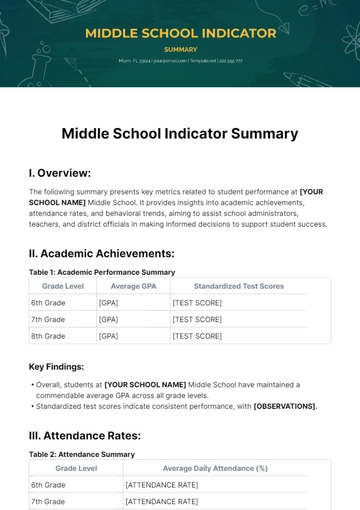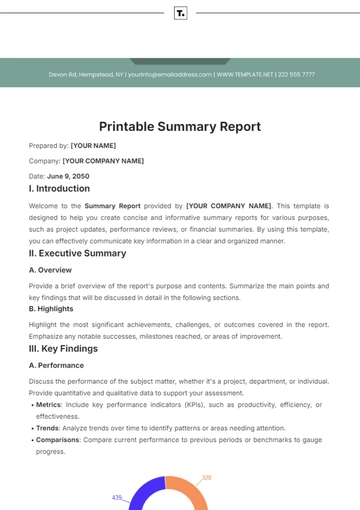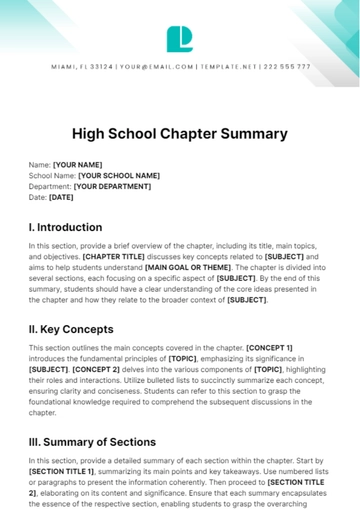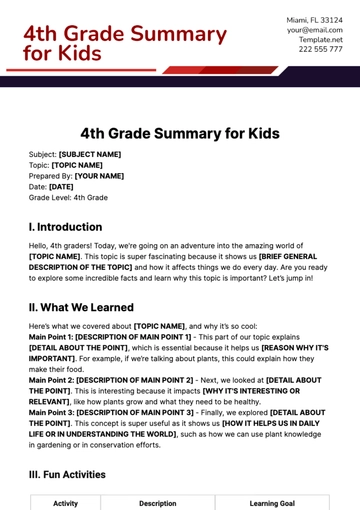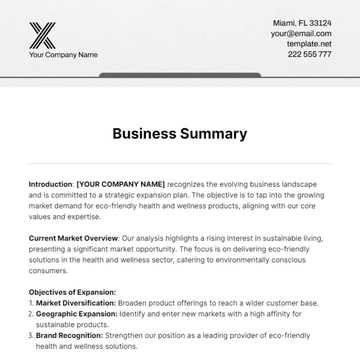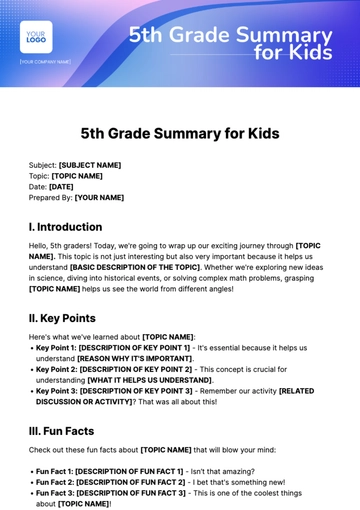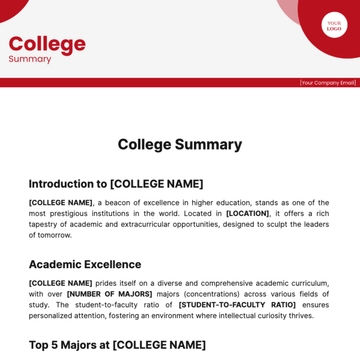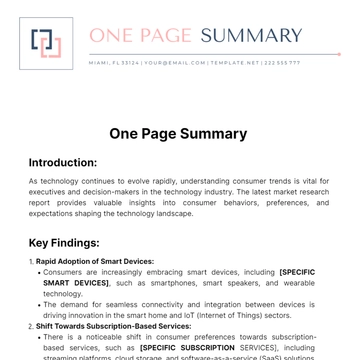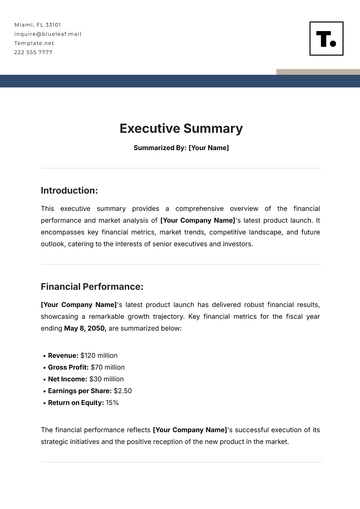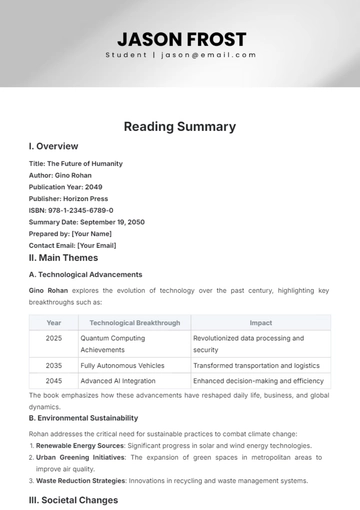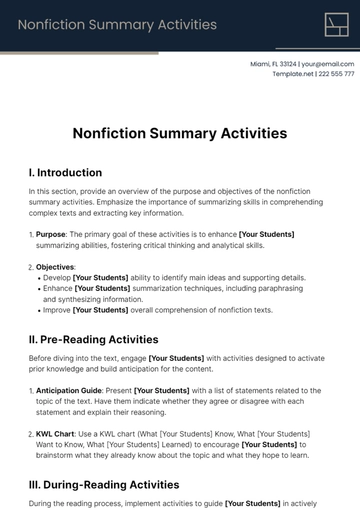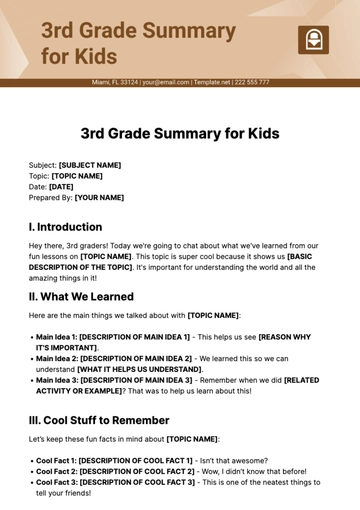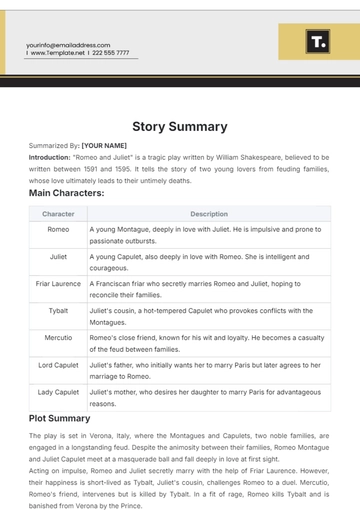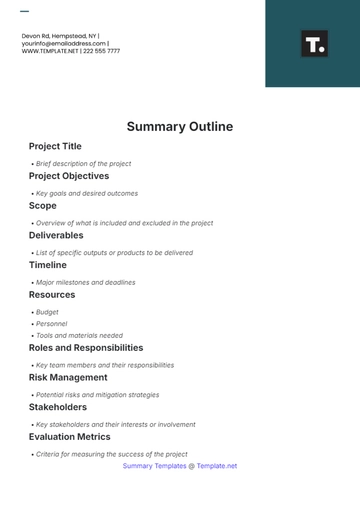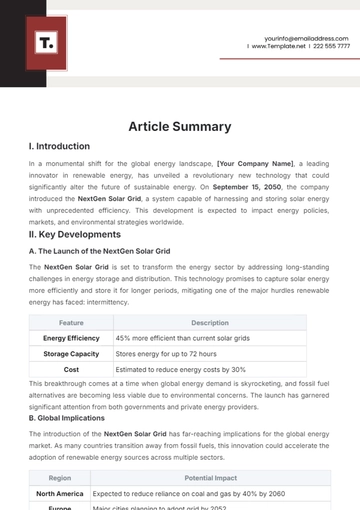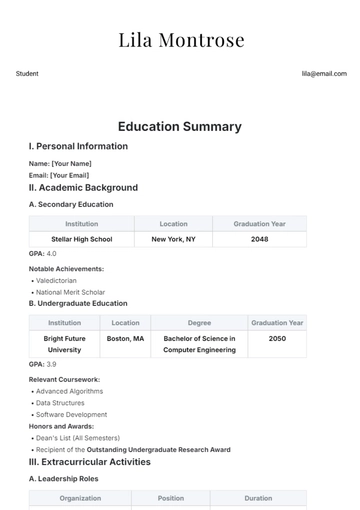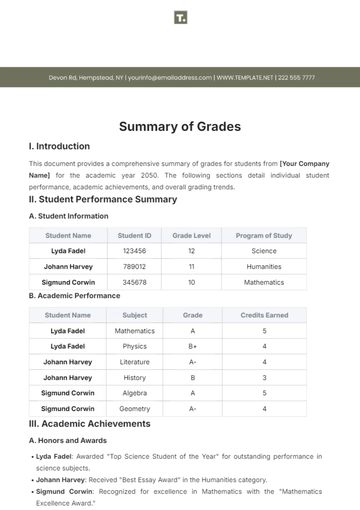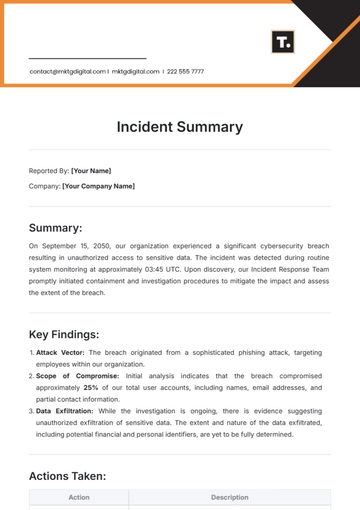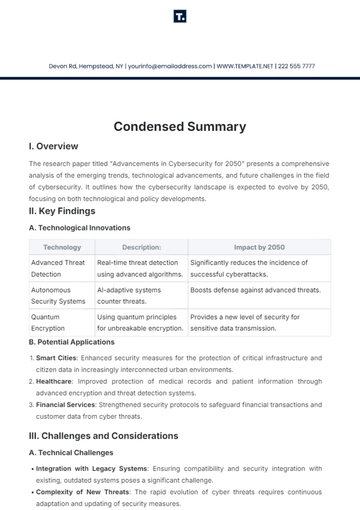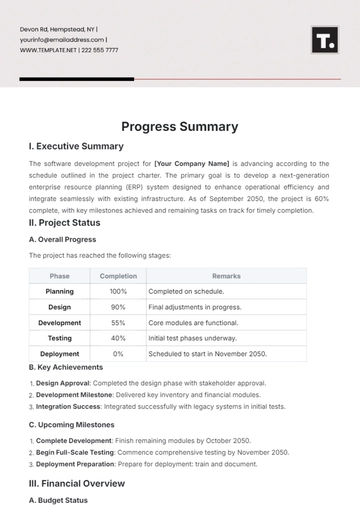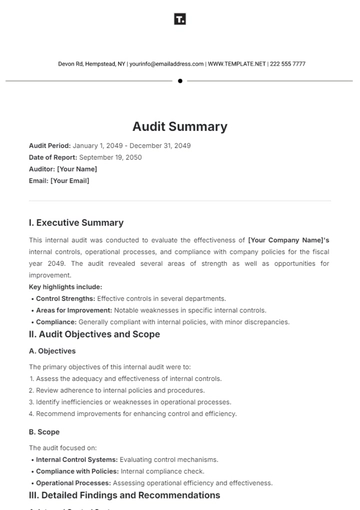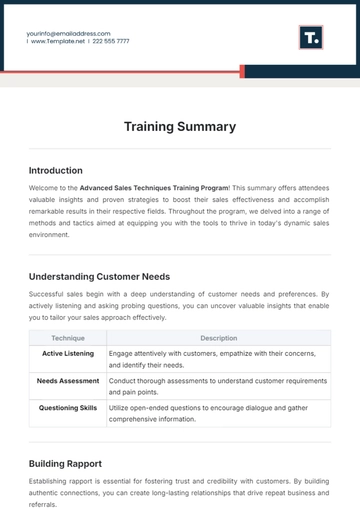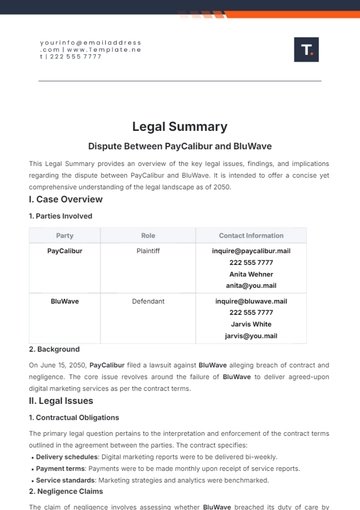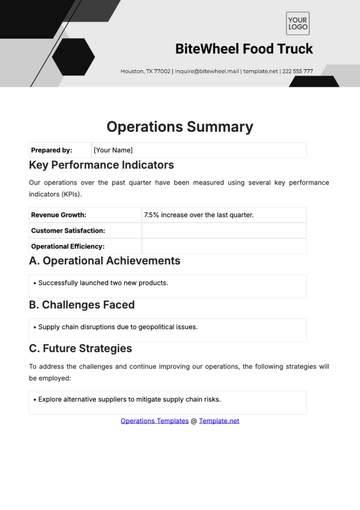Free Student Summary
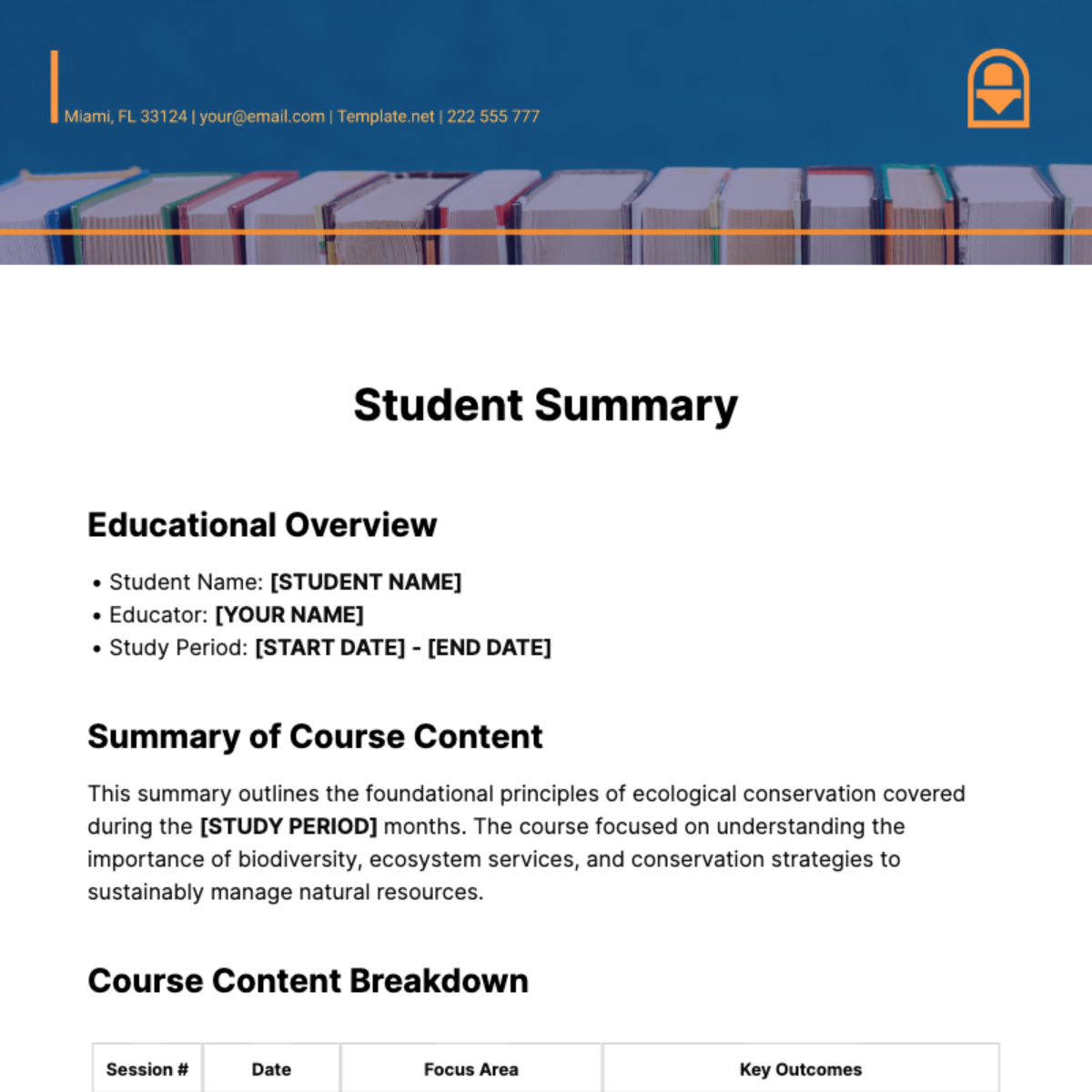
Educational Overview
Student Name: [STUDENT NAME]
Educator: [YOUR NAME]
Study Period: [START DATE] - [END DATE]
Summary of Course Content
This summary outlines the foundational principles of ecological conservation covered during the [STUDY PERIOD] months. The course focused on understanding the importance of biodiversity, ecosystem services, and conservation strategies to sustainably manage natural resources.
Course Content Breakdown
Session # | Date | Focus Area | Key Outcomes |
1 | [DATE] | Introduction to Ecology | Covered basic ecology concepts and the importance of biodiversity. |
2 | [DATE] | Biodiversity and Conservation | Discussed the role of biodiversity in ecosystem services and human well-being. |
3 | [DATE] | Conservation Strategies | Explored various conservation strategies and their implementation worldwide. |
4 | [DATE] | Climate Change and Conservation | Analyzed the impacts of climate change on ecosystems and conservation efforts. |
Progress and Learning Outcomes
Throughout the study period, [STUDENT NAME] demonstrated a significant understanding of ecological conservation principles. Key achievements include:
Understanding of Biodiversity: Grasped the critical role of biodiversity in maintaining ecosystem stability and resilience.
Conservation Strategies: Learned about different conservation strategies, including protected areas, wildlife corridors, and restoration ecology.
Climate Change Awareness: Developed an understanding of how climate change affects biodiversity and the importance of integrating conservation efforts to mitigate its impacts.
Student Feedback
[STUDENT NAME] reported feeling [POSITIVE/NEGATIVE] about their learning experience. They highlighted a newfound appreciation for the complexity of ecological systems and the urgent need for conservation efforts.
Educator's Observations
Throughout the course, it was evident that [STUDENT NAME] became increasingly engaged with the subject matter, showing a keen interest in conservation issues and a commitment to sustainable practices. Their ability to critically analyze and discuss conservation strategies was a key factor in their progress.
Recommendations for Further Study
Continued Learning: Engage in advanced courses on specific conservation topics, such as wildlife management or sustainable agriculture.
Practical Experience: Participate in local conservation projects or internships to gain hands-on experience.
Research Participation: Explore opportunities to contribute to conservation research projects to deepen understanding and impact.
Conclusion
[STUDENT NAME]'s participation in the Principles of Ecological Conservation course has led to significant knowledge gains and a deeper understanding of the role individuals and societies play in preserving our natural world. Continued education and active involvement in conservation efforts are encouraged to further their understanding and contribute to ecological sustainability.
This summary is designed to provide [STUDENT NAME] and educators with a concise overview of the course content, learning outcomes, and recommendations for future engagement in the field of ecological conservation.
Summarized By: [YOUR NAME]
- 100% Customizable, free editor
- Access 1 Million+ Templates, photo’s & graphics
- Download or share as a template
- Click and replace photos, graphics, text, backgrounds
- Resize, crop, AI write & more
- Access advanced editor
Discover the ultimate tool for student success with the Student Summary Template from Template.net. This editable and customizable template streamlines academic summaries effortlessly. Crafted for convenience, it's easily editable in our Ai Editor Tool, ensuring precision and efficiency in organizing your academic achievements. Elevate your student experience today!
